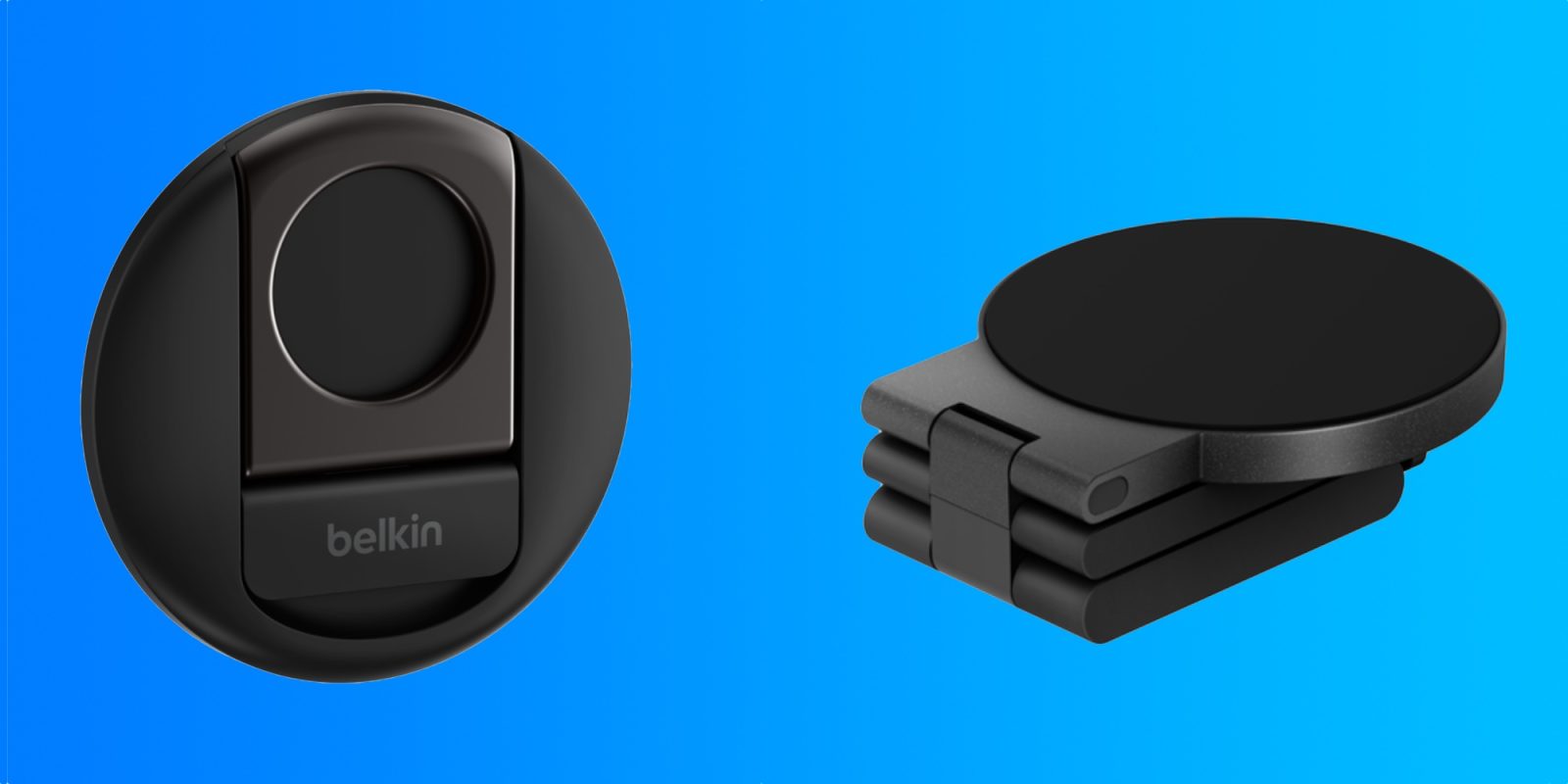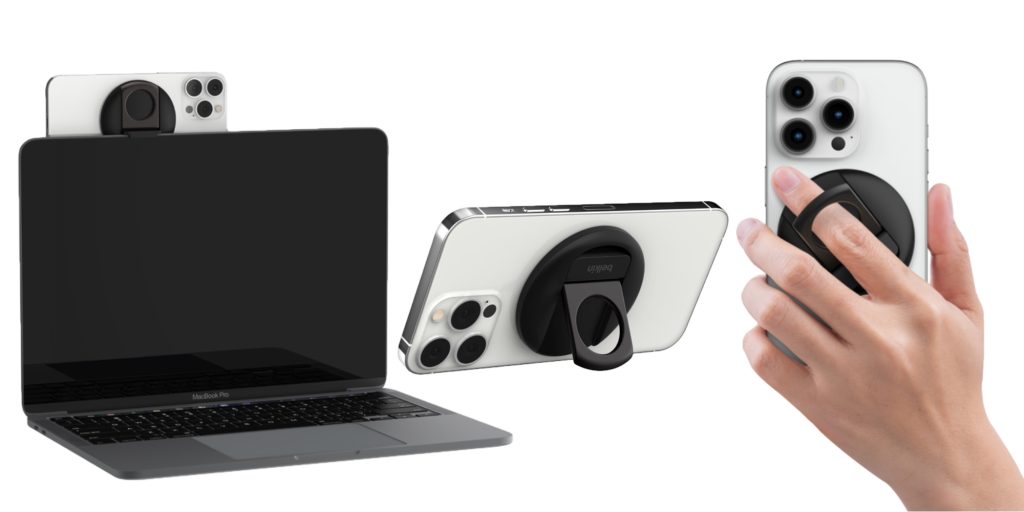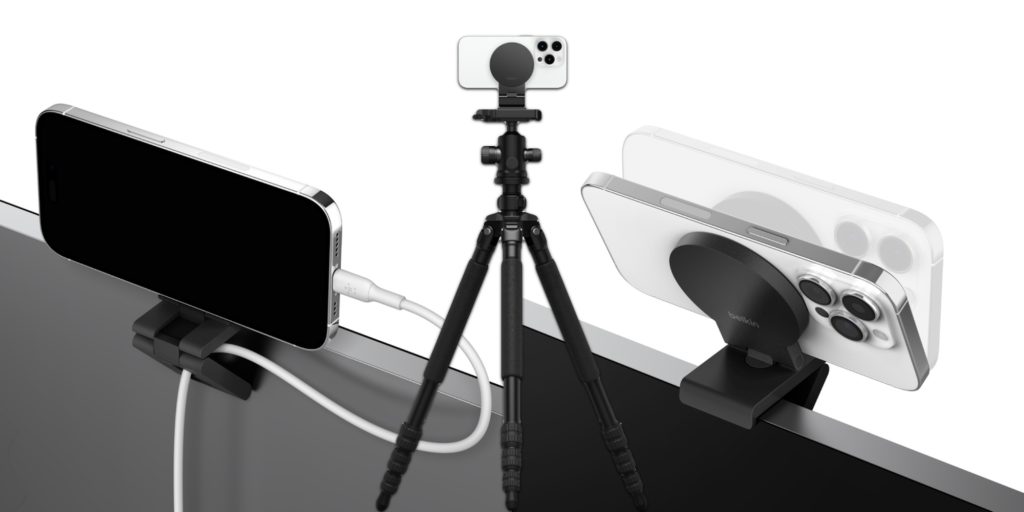
Apple’s Continuity Camera feature on macOS Ventura added the ability to use an iPhone as the Mac’s webcam. Belkin worked with Apple to create MagSafe mounts that let you easily position your iPhone in place for this feature. There are two different mount styles, and each one has its own hidden feature.
This story is supported by Mosyle, the only Apple Unified Platform. Mosyle is the only solution that fully integrates five different applications on a single Apple-only platform, allowing businesses and schools to easily and automatically deploy, manage, and protect all their Apple devices. Over 35,000 organizations leverage Mosyle solutions to automate the deployment, management, and security of millions of Apple devices daily. Request a FREE account today and discover how you can put your Apple fleet on auto-pilot at a price point that is hard to believe.

Belkin first released the iPhone Mount with MagSafe for Mac Notebooks last fall. A hands-on look explained how the notebook version included a kickstand/loop for propping up you phone for video or easily gripping it in one hand. That makes the $29.95 accessory more functional when you’re not using it as an iPhone mount for video calling on your MacBook.
Then Belkin released its iPhone Mount with MagSafe for Mac Desktops and Displays for $39.95 in December. This version is made specifically for use with monitors thicker than laptop lids including the Apple Studio Display and Apple Pro Display XDR.
The overall quality of the Apple Studio Display webcam was widely panned in early reviews, prompting Apple to release firmware that tried to address quality from a software perspective. Not everyone was impressed. The Apple Studio Display webcam and overall webcam quality of MacBooks over the years made macOS Ventura’s Continuity Camera feature receive much attention when it was announced.

And in the case of the Apple Pro Display XDR, the high-end monitor doesn’t actually include a built-in webcam.
In use, I’ve found the notebook version more practical as far as using Continuity Camera goes. Mac notebook cameras really aren’t anything to write home about, and iPhone back cameras are at the top of their class. For anything more than casual video chatting, Continuity Camera is actually useful.
Both versions support a Desk View mode that uses the iPhone camera when mounted to focus on something you’re presenting in front of you. I haven’t had a lot of luck with this specific feature, but fortunately I don’t much have a need for it.
Something I do find a need for on a regular basis is an iPhone mount that can be attached to a tripod. Whether I’m capturing photos of birds playing on my back porch or video of a gorgeous view, I regularly turn to such an accessory.
iPhone mounts for tripods always been a bit cumbersome to operate. Years ago I used one that required a hex key for loosening and tightening. More recently, I’ve used one that’s adjustable without needing another tool. I’ve also thought about how convenient a MagSafe version would be when it comes to attaching and detaching the iPhone from the mount.

Unrelated to this thought, I took Belkin’s iPhone Mount with MagSafe for Mac Desktops and Displays for a spin. It’s bulkier than the notebook version as it makes accommodations for varying display depths. You won’t find it doubling as a MagSafe Pop-Socket alternative like the slimmer version.
Instead, Belkin leverages the more robust design to allow it to double as an iPhone mount for tripods. That’s where I’m finding my most frequent use personally. I ditched my dated iPhone holder and replaced it with Belkin’s MagSafe mount. Now setup, adjustments, and takedown is much easier than with tripod mounts that require turning screws to get a proper fit.
So while I see the most benefit of Continuity Camera in use with notebooks, I’m getting the most frequent use out of the desktop version. It turns out it’s a great little MagSafe tripod mount that just happens to enable Continuity Camera on desktop Mac displays.
FTC: We use income earning auto affiliate links. More.



Comments